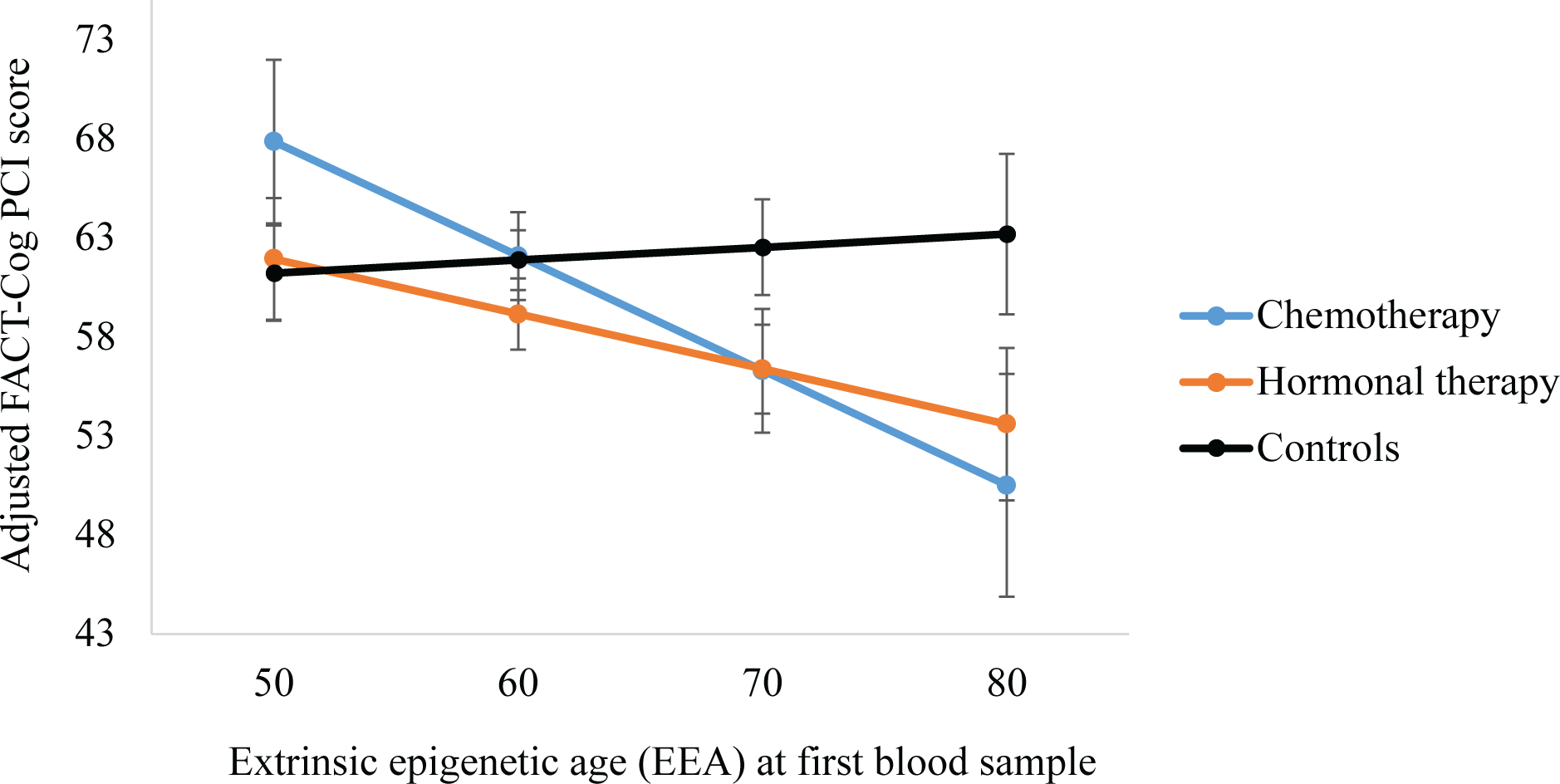Figure 4. Associations between adjusted Extrinsic Epigenetic Age (EEA) and self-reported cognition among older breast cancer survivors by systemic therapy modality and non-cancer controls at the first blood sample, approximately 24- to 36-months after enrollment.

Multiple regression models showing the association between adjusted EEA clock scores and self-reported cognition (FACT-Cog PCI scores) for survivors who received chemotherapy with or without hormonal therapy (n=29) and those who received hormonal therapy alone (n=51) relative to controls (n=101,). Models adjusted for chronological age at the first blood sample, comorbidities, racial group, site, and cognitive reserve (WRAT-4 score). Error bars represent 95% confidence intervals for each point estimate.
